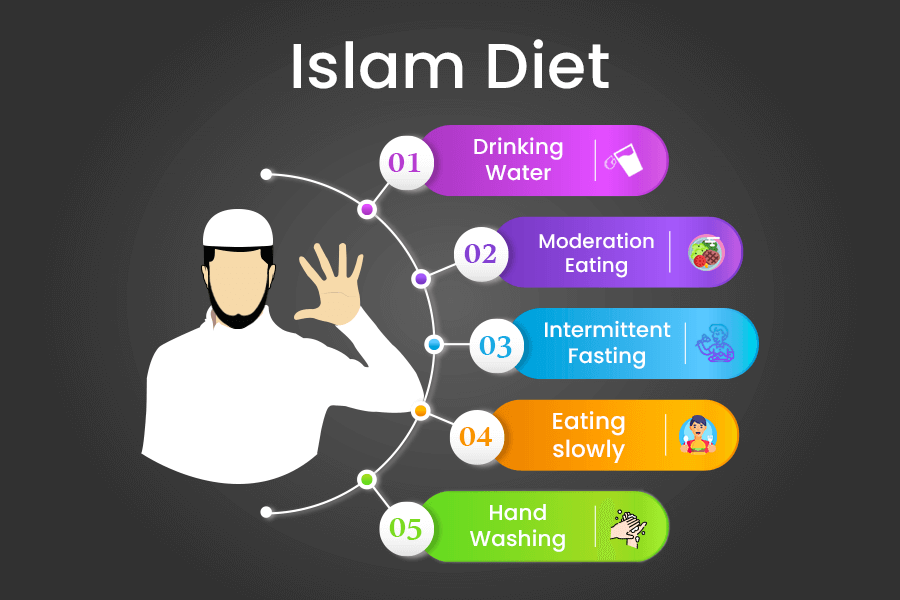A well-crafted morning routine sets the tone for the rest of your day. By incorporating the teachings of the Quran and Sunnah, you can create a morning routine that not only boosts your productivity but also aligns with your spiritual and personal growth.
The Prophet Muhammad (PBUH) emphasized the importance of starting the day with positivity, gratitude, and intention.
In this article, we will guide you on how to build a morning routine rooted in Islamic principles, allowing you to live each day with purpose and mindfulness.
1. Start Your Day with Fajr (The Early Morning Prayer)
Overview:
The Prophet Muhammad (PBUH) said, “The most beloved of deeds to Allah are those that are done consistently, even if they are small.” One of the best ways to start your morning is with the Fajr prayer, the first of the five daily prayers, which takes place at dawn.
Why It’s Important:
-
Fajr is not just an act of worship; it’s a moment to connect with Allah at the beginning of your day.
-
This early prayer creates a sense of discipline and spiritual connection that will carry you throughout the day.
How to Incorporate It:
-
Set an alarm for Fajr prayer, ensuring you wake up early enough to perform it with focus and reverence.
-
After Fajr, spend a few minutes in Dhikr (remembrance of Allah) or dua (supplication), seeking blessings for your day ahead.
2. Recite Quranic Verses or Surahs
Overview:
The Quran offers guidance, peace, and blessings, and incorporating Quranic recitation into your morning routine is a powerful way to begin your day. The Prophet (PBUH) was known to regularly recite the Quran in the mornings, and it’s a habit that brings immense spiritual rewards.
Why It’s Important:
-
The Quran is described as a source of light and guidance. Starting your day with its recitation brings tranquility to the heart and helps you maintain focus throughout the day.
-
The Prophet Muhammad (PBUH) said, “Whoever recites the Quran in the morning will be blessed in the rest of the day.”
How to Incorporate It:
-
Begin your day with reciting short Surahs like Al-Fatiha, Al-Ikhlas, Al-Falaq, and An-Nas.
-
Try to memorize new verses or Surahs to increase your connection with the Quran. You could also listen to a recitation to set a peaceful tone.
3. Perform the Sunnah of Wudu (Ablution)
Overview:
Wudu, or ablution, is a necessary part of preparing for prayer. The Prophet Muhammad (PBUH) said, “Wudu is the key to prayer.” Performing wudu not only purifies the body but also has a spiritual effect, preparing the soul for the day ahead.
Why It’s Important:
-
Wudu helps to cleanse both the body and the heart, symbolizing renewal and purity.
-
It’s a moment of mindfulness, reminding you of the importance of cleanliness in both physical and spiritual realms.
How to Incorporate It:
-
Begin your morning routine by performing wudu before Fajr prayer, ensuring that you perform it with intention and focus.
-
Take your time to make sure every step is done properly, as it allows you to reflect and connect with Allah’s blessings of cleanliness and purity.
4. Practice Gratitude with Dhikr (Remembrance of Allah)
Overview:
The Sunnah encourages regular dhikr, or remembrance of Allah, throughout the day, but especially in the morning. The Prophet (PBUH) was known to engage in dhikr after Fajr, and this practice helps cultivate a mindset of gratitude and mindfulness.
Why It’s Important:
-
Dhikr brings tranquility to the heart and mind, reminding you of Allah’s mercy and presence in your life.
-
It has the power to cleanse the soul and bring you peace, which is vital for a successful and fulfilling day.
How to Incorporate It:
-
After Fajr prayer, spend a few minutes engaging in simple dhikr like SubhanAllah (Glory be to Allah), Alhamdulillah (All praise be to Allah), and Allahu Akbar (Allah is the Greatest).
-
You can also recite Ayat-ul-Kursi (Surah Al-Baqarah, 2:255) for protection and blessings throughout the day.
5. Have a Healthy and Balanced Breakfast
Overview:
The Prophet Muhammad (PBUH) emphasized the importance of eating in moderation and consuming healthy, wholesome foods. A balanced breakfast, ideally eaten after Fajr, provides the energy needed to start the day with vitality.
Why It’s Important:
-
A nutritious breakfast fuels the body, helping you stay focused, energized, and productive throughout the day.
-
The Sunnah encourages consuming wholesome, natural foods such as dates, honey, milk, and barley, which provide essential nutrients.
How to Incorporate It:
-
Prepare a healthy breakfast with items like dates, honey, olives, milk, or whole grains.
-
Avoid overeating and focus on moderation, as recommended in the Sunnah: “Eat and drink, but do not waste by extravagance.” (Quran 7:31)
6. Engage in Physical Activity (Sunnah of Exercise)
Overview:
The Prophet Muhammad (PBUH) was known for his physical strength and activity, encouraging a healthy lifestyle. Physical activity in the morning is essential for maintaining overall well-being and mental clarity.
Why It’s Important:
-
Regular exercise improves health, boosts energy levels, and enhances mental clarity, allowing you to perform daily tasks with greater focus.
-
The Prophet (PBUH) practiced activities like walking, archery, and horseback riding, all of which emphasize the importance of maintaining an active lifestyle.
How to Incorporate It:
-
Incorporate light exercise into your morning routine, such as stretching, walking, or a short workout.
-
Ensure that your exercise routine aligns with the Sunnah by focusing on activities that are moderate, enjoyable, and promote overall health.
7. Set Your Intentions for the Day
Overview:
The Prophet Muhammad (PBUH) was known to begin his day by setting clear intentions for his actions. Intention, or niyyah, plays a key role in turning everyday tasks into acts of worship and earning rewards.
Why It’s Important:
-
Setting intentions allows you to approach your day with purpose and clarity, reminding you that every action can be a means of seeking Allah’s pleasure.
-
The Prophet (PBUH) said, “Actions are judged by intentions, and each person will be rewarded according to what they intended.” (Bukhari)
How to Incorporate It:
-
After your morning prayers, take a moment to reflect on your intentions for the day.
-
Ensure that your tasks, whether big or small, are done with the intention of pleasing Allah and fulfilling your duties with excellence.
Conclusion
Building a morning routine based on the Quran and Sunnah is a powerful way to start your day with spiritual clarity, physical energy, and mental focus.
By integrating these practices into your morning routine—such as performing Fajr prayer, reciting Quranic verses, engaging in dhikr, and eating a balanced breakfast—you can create a fulfilling, productive, and blessed day.
May your mornings be filled with peace and purpose, and may every action you take bring you closer to Allah.
FAQ
Q: How early should I wake up for Fajr prayer?
A: You should aim to wake up around 15–20 minutes before the time for Fajr to ensure you have time for wudu, prayer, and a moment of reflection.
Q: Can I incorporate other activities in my morning routine?
A: Yes, you can incorporate other activities such as reading, journaling, or even working on personal projects, as long as they align with your intention of seeking Allah’s pleasure.
Q: How long should my morning routine take?
A: Your morning routine doesn’t need to be lengthy; even 30–45 minutes dedicated to prayer, dhikr, and a healthy breakfast can set you up for a productive and blessed day.




